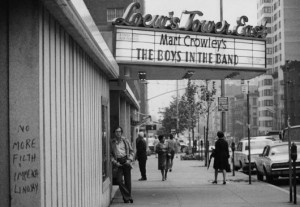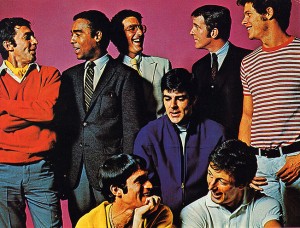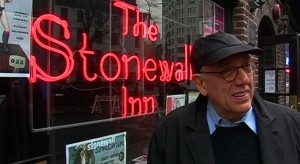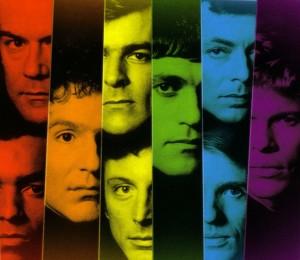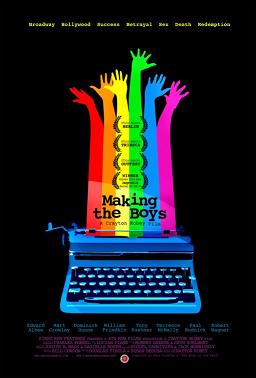
THE SAD LEGACY OF AN HISTORICAL MOMENT
Making the Boys, the vigorous and absorbing new documentary, ostensibly about Mart Crowley and his ground-breaking The Boys in the Band, is, in truth, at least three (and possibly four) documentaries rolled into one, and put together with a sure and steady hand by the highly gifted and thematically ambitious Crayton Robey.
First, there is the story of Crowley himself, from his early days as a party boy among the Hollywood elite to his success as the author of his most famous play to his failure to live up to the promise (let alone the phenomenal success) of that play to his financially and commercially profitable run as producer of television’s hit series Hart to Hart to his current status as one of the patriarchs of gay culture.
Then it is a sweeping look at the gay movement itself from (naturally) The Boys in the Band to Stonewall to the AIDS epidemic to Act Up to the present day when, to some young and liberated gay men, Crowley’s play was a part of history and a part they no longer have any connection to or memory of.
Also, it is a critical analysis of the work in talking-heads style, with a fascinating and celebrated cast of characters from Edward Albee and Larry Kramer to Tony Kushner and Paul Rudnick, interspersed with trenchant commentary from such trend-setters as Michael Musto and Dan Savage, as well as astute observations of those who were involved with the play (surviving actors Laurence Luckinbill and Peter White and set designer and artist Peter Harvey) and the film version (director William Friedkin, producer and pal Dominick Dunne).
Finally, it is the tragic story of how many members of the original cast have died of AIDS, the sad legacy of an historical moment.
The first part contains a lot of star-gazing, since Crowley was Natalie Wood’s friend and confidante, and the parties he attends allows us to sneak peeks at Judy Garland, Rock Hudson, and Tuesday Weld, among others. It also recreates vividly the impact The Boys in the Band made as the first play to put a bunch of gay characters in one play on one stage. Love it or hate it, it was truly historic. At one moment, Crowley (who is a charming guide throughout the film) remembers how actor Richard Harris once glared angrily at him before telling Crowley that he was “not a serious person.” The moment reveals Harris to be homophobic, but it contains the curious possibility that Harris might also be accurate in his observation.
It is in the critical analysis that some of the film’s more interesting revelations take place, most notably the acerbic and wise comments of Albee, whose Playwrights Unit produced the play but who refused to be one of the producers when the play made its move to Off Broadway, and who says that he never saw so many straight people leave the theater so happy that they weren’t gay. Kramer, too, seems sour, and even Kushner is heard to suggest that it was retrogressive, but who, on a panel with Crowley, is seen to be smiling pleasantly. Yet, despite a critical overview that suggests the play may have been filled with stereotypes, almost everyone recognizes the power and importance of the play as an event.
Interviews with the late Robert La Tourneaux are especially poignant. His performance as the hustler/gift that the play’s birthday boy is given did not help his career and, indeed, before dying of AIDS, in order to feed his drug habit and to simply survive, he is forced to sell himself to men and, indeed, become the character he had created.
That Robey has managed to cram all of this into one film is exhaustive without ever becoming exhausting. Making the Boys makes as strong a contribution as The Boys in the Band once did, and it, too, may become a lasting part of gay history.
Making the Boys
First Run Features
now playing in New York City
opens March 18, 2011 in Los Angeles
for play dates in other cities, visit First Run
